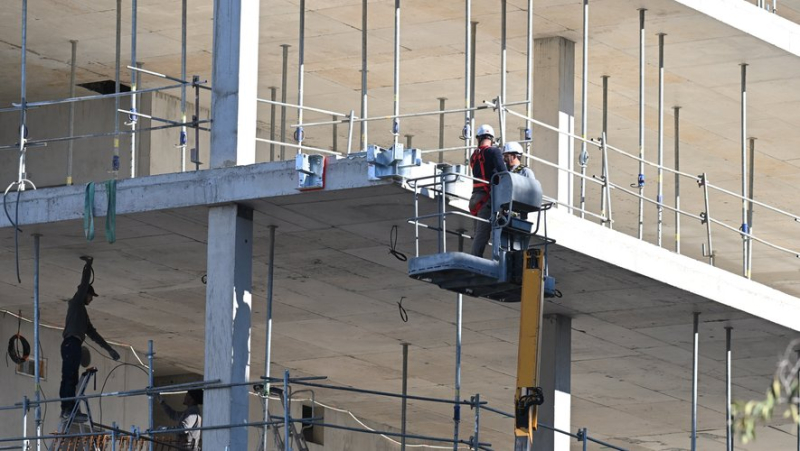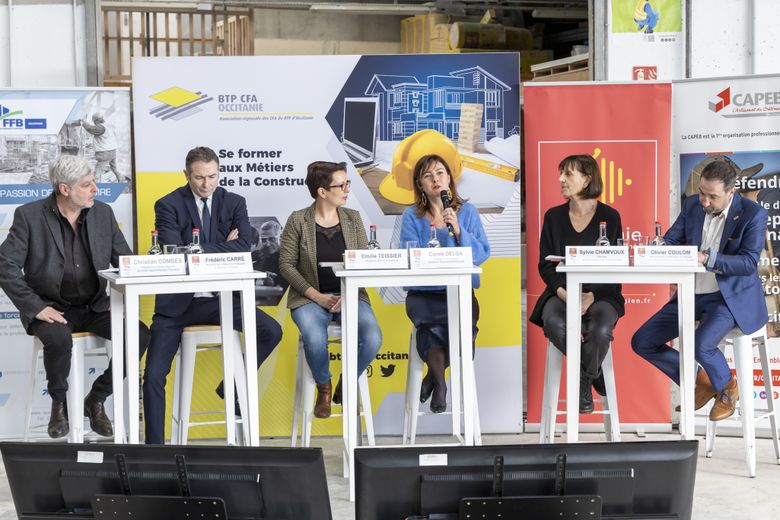Housing: 150 million euros from the Region to do more and better in the face of a deep and lasting crisis

Housing starts have fallen by 30% since the start of 2024. Midi Libre – JEAN MICHEL MART
While the number of applicants is exploding in social housing, and construction starts are falling in all housing sectors, creating gloomy prospects, the community wants to act on a set of levers and promote the energy transition, via the Sustainable housing plan.
Housing does not fall within the competence of the Region. But how can we not act in the face of "the particular situation" of Occitanie, faced with unparalleled demographic growth. How to remain inactive in the face of the collapse of new construction – "22 to 25% drop between 2022 and 2023" -, a veritable factory of "poorly housed", or even facing the "saving measures envisaged" by the government on the MaPrimeRénov' system. "I am worried", the president of the Region confessed on this subject this Thursday.
It is not a plea for a policy, the Sustainable Habitat plan for the Region voted on last December, that Carole Delga engaged in. But with a disastrous conclusion. That of a deep and multiple crisis which Occitanie is facing, with social consequences, on the economy and employment, to which this plan is a part of the response, to the tune of 150 million euros; over two years.
Construction crisis
New housing starts are down, at the start of the year, by 20%. "Less 30% , for the building permits granted", observes Frédéric Carré, president of the Occitanie branch of the French Building Federation (FFB). "The need for social housing was 1.6 million in 2017, in France, it increased to 2.4 million in 2023", continues Carole Delga. We built some "8,400 last year in our thirteen departments. Nothing compared to the need, breathes Sylvie Chamvoux, regional director of the Abbé-Pierre Foundation. We have almost reached 200,000 applicants. 2023 will go down as the year of the explosion of the housing crisis, there is a great need to mobilize everyone."
This Thursday, in a Toulouse construction apprentice training center, Carole Delga contracted with the FFB a support system for the sector (opposite), for the economic and supporting one's own transition. Above all, she took advantage of the moment to detail her desire to be "very proactive"on this chapter of housing, therefore, even if its community is not a decisive actor in a competence which is above all that of the State. She wants to help "more housing, better housing. The quantitative, but with the qualitative: eco-materials, the lowest possible energy consumption, an aesthetic of the constructive act, a particular listed as the boss of the regional executive.

Carole Delga, surrounded this Thursday by the presidents of the CFA du BTP and the Abbé-Pierre Foundation, the bosses of the order of architects, the FFB and the Capeb d'Occitanie.
"Living with dignity"
Its Sustainable Housing plan is already implementing fifteen actions, which a second phase will enrich at the end of spring, after consultation with institutions and professionals and citizens. The main amount, more than a third of the envelope, or 62 million euros, goes to increasing reuse on construction sites, by promoting the supply of materials
through the circular economy and the good use of water. Next, in this vein of the energy transition which constitutes the heart of the plan, 47 M€ aid dedicated to the massification of thermal renovation of collective buildings.
A sector contract with construction
The Region signed, after several years of work and for a period of five years, a contract of the sector with the Regional Building Federation and the Capeb of Occitanie. A contract that is presented like a "crisis shock absorber" by Frédéric Carré, the preé ;regional resident of the FFB, in "these difficult times". After the setbacks linked to Covid-19 and then again the surge in the cost of materials, the third largest regional economic sector (11 billion euros in turnover). ;rsquo;business, 72,000 companies employing 160,000 workers) sees the emergence of a "new air gap next year", point Fr&déric Carré, linkedé to declines in construction starts and building permits. "We lost 1,500 jobs in the region. We could lose, if nothing is done, 5,000 or 7,000 more."
Over five years, the contract will support the sector in 35 measures in its ecological, technological and digital transformation and the adaptation of ;eacute;tences.
The rest covers aid to communities, including technical assistance, the fight against vacant housing, such as training in ecological transformation professions, the birth of a regional campus dedicated to them, which will take place in Montpellier by 2027. Levers, a toolbox with an amount that is not insignificant, to imagine as so many steps to do more and better. "I want to ensure that each of our fellow citizens can live with dignity, in decent housing."< /p>




